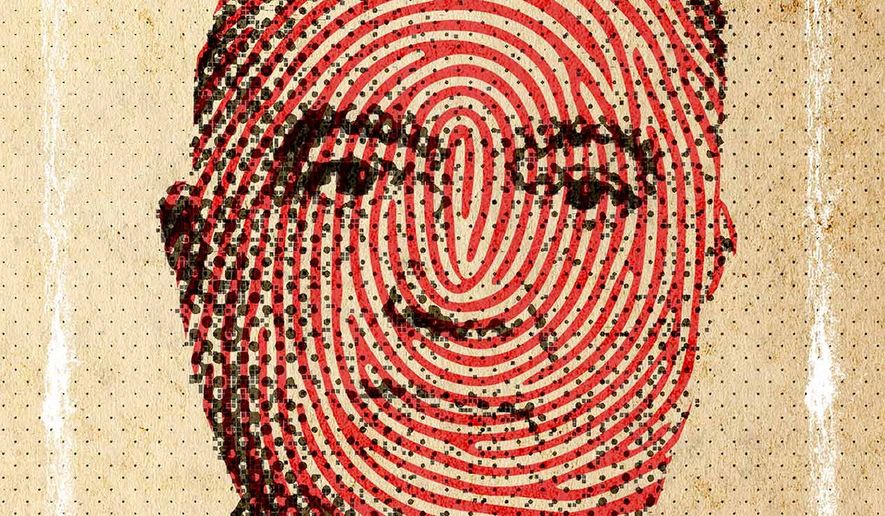OPINION:
Anyone in the know when J. Edgar Hoover was FBI director was aware of the rumors that Hoover kept secret files with damaging information that he could unleash to go after his enemies and ensure that he would remain director for almost 50 years.
Yet in her supposedly definitive new book on Hoover, Yale professor Beverly Gage dismisses such concerns.
“Popular legend suggests that Hoover held on to power as long as he did through blackmail and intimidation — and it is true that he was skilled in such arts,” Ms. Gage writes in “G-Man.” “But no public servant could survive for 48 years without support from both above and below. The truth is that Hoover stayed in office for so long because many people, from the highest reaches of government down to the grassroots, wanted him there and supported what he was doing.”
In fact, Hoover’s use of the secret FBI files to guarantee his tenure in office was more than legend.
In my book “The Secrets of the FBI,” I quote William Sullivan, who became the No. 3 FBI official under Hoover, as saying: “The moment [Hoover] would get something on a senator, he’d send one of the errand boys up and advise the senator that ‘we’re in the course of an investigation, and we by chance happened to come up with this data on your daughter. But we wanted you to know this. We realize you’d want to know it.’ Well, Jesus, what does that tell the senator? From that time on, the senator’s right in his pocket.”
Lawrence J. Heim, who was in the Crime Records Division, confirmed to me that the bureau sent agents to tell members of Congress that Hoover had picked up derogatory information on them.
“He [Hoover] would send someone over on a very confidential basis,” Mr. Heim said. As an example, if the Metropolitan Police in Washington had picked up evidence of homosexuality, “He [Hoover] would have him say ‘this activity is known by the Metropolitan Police Department and some of our informants, and it is in your best interests to know this.’ But nobody has ever claimed to have been blackmailed. You can deduce what you want from that.”
Of course, the reason no one publicly claimed to have been blackmailed is that blackmail, by definition, entails collecting embarrassing information that people do not want made public. But not everyone was intimidated.
Roy L. Elson, the administrative assistant to Sen. Carl Hayden, will never forget an encounter he had with Cartha DeLoach, the FBI’s liaison to Congress. In the early 1960s, DeLoach wanted an added appropriation for the new FBI headquarters, which Congress approved in April 1962.
“The senator supported the building,” Elson said. “He always gave the bureau more money than they needed. This was a request for an additional appropriation. I had reservations about it. DeLoach was persistent.”
DeLoach “hinted” that he had “information that was unflattering and detrimental to my marital situation and that the senator might be disturbed,” said Elson, who was then married to his second wife. “I was certainly vulnerable that way,” Elson said. “There was more than one girl [he was seeing]. … The implication was there was information about my sex life. There was no doubt in my mind what he was talking about.”
Elson said to DeLoach: “Let’s talk to him [the senator] about it. I think he’s heard about everything there is to hear about me. Bring the photos if you have them.” At that point, Elson said, “He started backing off. … He said, ‘I’m only joking.’ Bullshit,” Elson said. “I interpreted it as attempted blackmail.”
Reading the so-called Official and Confidential files that survived makes it clear they were gathered for the sole purpose of blackmail. For example, on June 13, 1958, the head of the Washington field office informed Hoover that, before marrying a member of Congress, the member’s wife had been “having an affair with a Negro [and] also at one time carried on an affair with a House Post Office employee.” More recently, the report said, the congressman’s wife “endeavored to have an affair with [an] Indonesian, who declined …”
In response to this tidbit, Hoover wrote back on June 25 that it was “certainly thoughtful of you to advise me of matters of current interest, and I am glad to have the benefit of this information.”
“This was a way of putting congressmen on notice that we had something on them and therefore they would be more disposed to meeting the bureau’s needs and keeping Hoover in power,” John J. McDermott, who headed the Washington field office and eventually became deputy associate FBI director, told me.
Thus, based on on-the-record interviews with FBI officials of the time, Hoover’s use of blackmail files — the greatest of his abuses — was no “legend.” Ms. Gage may be a Yale history professor, but “G-Man” is no history. It is malarkey.
• Ronald Kessler, a former Washington Post and Wall Street Journal investigative reporter, is the author of “The Secrets of the FBI.”




Please read our comment policy before commenting.